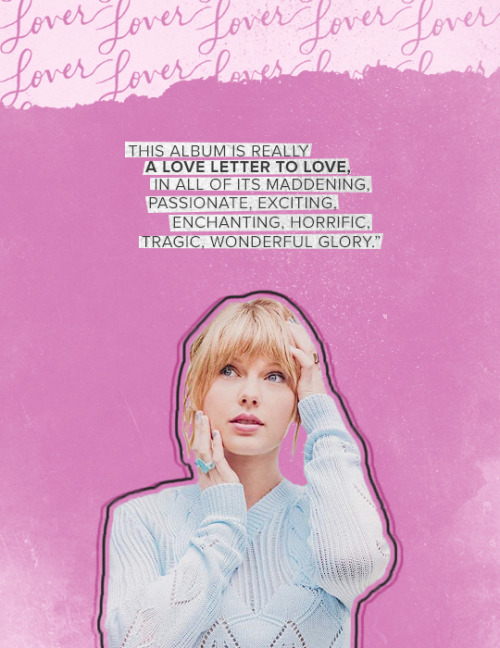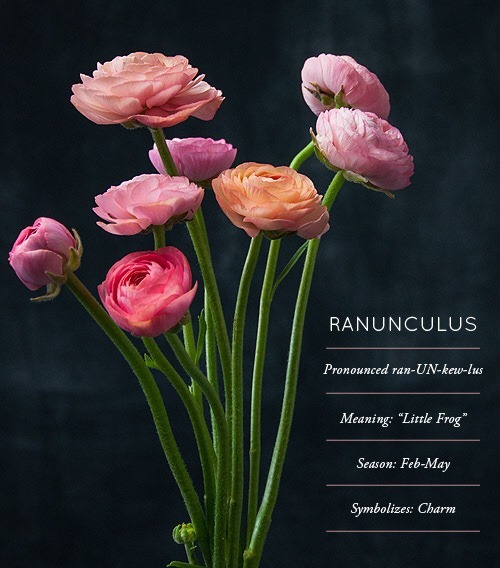How Did I Get Past My Writer’s Block For A Specific Scene I Was Rewriting?
how did I get past my writer’s block for a specific scene I was rewriting?
i tried rewriting the same scene in the same way with different words
i tried changing character povs
i tried cutting out the first part of the scene
i tried cutting out / significantly changing the second part of the scene
i basically just wrote a hundred false starts and hated all of them.
but all these false starts helped me build context. I learned more about the characters, and I learned about what the scene did and did not need to do to be successful.
i took a step back and looked what was important - primarily introducing the main conflict and giving the reader a sense of the main character’s personality, but on a subtler level I also need to set up the important relationship that the entire story hinges upon. And this last part turned out to be the missing key - I needed to make the inciting incident tell us more about the relationship between the two characters.
So I did a bit of everything in the end. I cut out the initial writing-myself-into-the-story bits but kept the first bits of action, and just did a better job of weaving character development into that. I moved the inciting incident a little further back to allow for more character development time, and also to make the character introduction feel more natural and meaningful.
and yeah, it still needs line edits and some fleshing out (it is still only draft two), but I finally don’t hate this scene and it makes way more sense for what I want out of an opening scene for this story
More Posts from Ficionalmanenthusiast and Others


For a healthier option, Lover will be out August 23.
i just heard someone say that the reason reputation only has one outfit is because her reputation hasn’t changed. no matter how successful she is, people will still see her as someone who dates around and writes songs about her exes (bs) and i am flabbergasted.
If you’re like me and you have the debilitating habit of beating yourself up over things, look yourself in the mirror and just go “I am young and I am allowed to make mistakes. It’s not that serious.” Bc it really isn’t. It is not that serious at all. This is not our second time living. We did not have a rehearsal for what the correct way to live is. This is our first time and we are allowed to stumble. It’s fine. It’s not that serious.

"Don't vote to teach the Democrats a lesson!" Great thanks my Jewish disabled queer ass will just die then
And then there was one (1989 song left)
Girls don’t want to work, girls just want to exist for the sake of existing for a little while. Maybe in a field with a book.

When I was a kid, my dad hated when I hung up anything on my walls. My art, band posters, movie posters, anything. Not with taxks, not with tape (it “ripped the paint off”) not with anything. At one point in 5th or 6th grade he came in my room and found me hanging up a Diary of a Wimpy Kid poster with tacos and he was like “EVERY HOLE YOU PUT IN THE WALL TAKES $10 OFF THE VALUE OF THE HOUSE.” so when I was mad at him, I’d insert tacks into the wall in places he couldn’t easily see just out of spite. Whoever owns the house now is probably wondering about it.
ha?
every single person who reblogs this
every
single
person
will get “doot doot” in their ask box
Ending your Novel
When ending your novel, there are a few things to consider.
You’ll want to build up tension during the climax, and wrap things up during the resolution. Don’t forget to conclude your main storyline and finish up your subplots as well.
There should be some room left for readers to interrupt things on their own, such as the fate of certain characters.
Not only is it important that your ending makes sense, but it should also evoke emotion.
Knowing how your novel will end sooner than later will help guide you to its finish without wandering too much on pointless scenes.
📚 Here are some endings you can consider:
1) The Classic Cliff Hanger
Done wrong, this can leave readers unsatisfied. But if it’s done carefully, it can leave your audience yearning for more. Your protagonist’s main quest/goal should be concluded by the end of your novel, but leaving questions unanswered or a problem unresolved can be an intriguing cliffhanger. Cliff hangers don’t have to be groundbreaking, they can be small.
For example, Katniss survives The Hunger Games (concluding her main goal) but by tricking the Gamemakers into allowing two victors, we are left wondering what the consequences will be. Not only that, but we question what will come of her relationship with Peeta as he painfully realizes all of Katniss’s affection towards him was simply for the cameras.
2) End where you started
In a symbolic circle of events, you could potentially end your story in the location where it began. However, now the protagonist has newfound strengths or knowledge and can reflect on how they started. This cyclical ending can also work with a mirrored scene (ex. starting and ending with a sword fight).
3) The What-If Ending
Instead of a direct cliffhanger, this conclusion focuses on leaving the ending up to the reader’s imagination. In The Giver, Jonas successfully leaves behind his town and approaches Elsewhere on a speeding sled. He is barely holding onto consciousness and we are left wondering if he will make it there alive—and if it’s even a real place to begin with.
4) The Twist
An unexpected (but planned) ending that can excite and surprise your reader. While a twist should be unexpected, when a reader goes back, there should be breadcrumbs and hints that make it intentional.
5) Simply… Resolved.
There are no open-ended questions or cliffhangers. Everything is wrapped up neatly in a satisfying way for your readers.
Instagram: coffeebeanwriting
-
 tyanis reblogged this · 3 months ago
tyanis reblogged this · 3 months ago -
 starry-vibes0411 reblogged this · 6 months ago
starry-vibes0411 reblogged this · 6 months ago -
 pessimistic-jellyfish reblogged this · 7 months ago
pessimistic-jellyfish reblogged this · 7 months ago -
 sniffthecactus liked this · 7 months ago
sniffthecactus liked this · 7 months ago -
 executivenerd reblogged this · 7 months ago
executivenerd reblogged this · 7 months ago -
 executivenerd liked this · 7 months ago
executivenerd liked this · 7 months ago -
 tyanis reblogged this · 7 months ago
tyanis reblogged this · 7 months ago -
 mrbrightside108 liked this · 7 months ago
mrbrightside108 liked this · 7 months ago -
 wingstobetorn reblogged this · 7 months ago
wingstobetorn reblogged this · 7 months ago -
 wingstobetorn liked this · 7 months ago
wingstobetorn liked this · 7 months ago -
 hell-where-i-belong liked this · 8 months ago
hell-where-i-belong liked this · 8 months ago -
 len-the-neverending reblogged this · 8 months ago
len-the-neverending reblogged this · 8 months ago -
 snepai-sen liked this · 8 months ago
snepai-sen liked this · 8 months ago -
 ashiekitten liked this · 8 months ago
ashiekitten liked this · 8 months ago -
 heyitslapis liked this · 8 months ago
heyitslapis liked this · 8 months ago -
 blueookashi liked this · 8 months ago
blueookashi liked this · 8 months ago -
 failboyshitstorm reblogged this · 8 months ago
failboyshitstorm reblogged this · 8 months ago -
 failboyshitstorm liked this · 8 months ago
failboyshitstorm liked this · 8 months ago -
 stardatez3ro liked this · 8 months ago
stardatez3ro liked this · 8 months ago -
 onekisstotakewithme liked this · 8 months ago
onekisstotakewithme liked this · 8 months ago -
 stroyent reblogged this · 8 months ago
stroyent reblogged this · 8 months ago -
 stroyent liked this · 8 months ago
stroyent liked this · 8 months ago -
 joonebugg liked this · 8 months ago
joonebugg liked this · 8 months ago -
 neon-draws-sometimes reblogged this · 8 months ago
neon-draws-sometimes reblogged this · 8 months ago -
 hoerikwaggo reblogged this · 8 months ago
hoerikwaggo reblogged this · 8 months ago -
 hoerikwaggo liked this · 8 months ago
hoerikwaggo liked this · 8 months ago -
 alwaysoutofideas reblogged this · 8 months ago
alwaysoutofideas reblogged this · 8 months ago -
 alwaysoutofpaper liked this · 8 months ago
alwaysoutofpaper liked this · 8 months ago -
 tolbachik liked this · 8 months ago
tolbachik liked this · 8 months ago -
 drybranmuffin liked this · 8 months ago
drybranmuffin liked this · 8 months ago -
 bananapuddingwithwhip liked this · 8 months ago
bananapuddingwithwhip liked this · 8 months ago -
 neon-draws-sometimes liked this · 8 months ago
neon-draws-sometimes liked this · 8 months ago -
 creation-help reblogged this · 8 months ago
creation-help reblogged this · 8 months ago -
 sageaisling reblogged this · 8 months ago
sageaisling reblogged this · 8 months ago -
 runeseaks reblogged this · 8 months ago
runeseaks reblogged this · 8 months ago -
 runeseaks liked this · 8 months ago
runeseaks liked this · 8 months ago -
 awritingcaitlin reblogged this · 8 months ago
awritingcaitlin reblogged this · 8 months ago -
 thepoetjean-makes-stuff liked this · 9 months ago
thepoetjean-makes-stuff liked this · 9 months ago -
 forevermagik reblogged this · 10 months ago
forevermagik reblogged this · 10 months ago -
 bleuberrysatin liked this · 10 months ago
bleuberrysatin liked this · 10 months ago -
 benny-snecko liked this · 10 months ago
benny-snecko liked this · 10 months ago -
 sirenhighway liked this · 10 months ago
sirenhighway liked this · 10 months ago -
 lowkeyed1 reblogged this · 10 months ago
lowkeyed1 reblogged this · 10 months ago -
 margaritadaemonelix liked this · 10 months ago
margaritadaemonelix liked this · 10 months ago -
 greenlings reblogged this · 10 months ago
greenlings reblogged this · 10 months ago -
 greenlings liked this · 10 months ago
greenlings liked this · 10 months ago -
 celamity reblogged this · 10 months ago
celamity reblogged this · 10 months ago -
 celamity liked this · 10 months ago
celamity liked this · 10 months ago -
 chellybeansupreme liked this · 10 months ago
chellybeansupreme liked this · 10 months ago

Fandom Maniac//Hufflepuff// fanfic writer and fanatic
111 posts